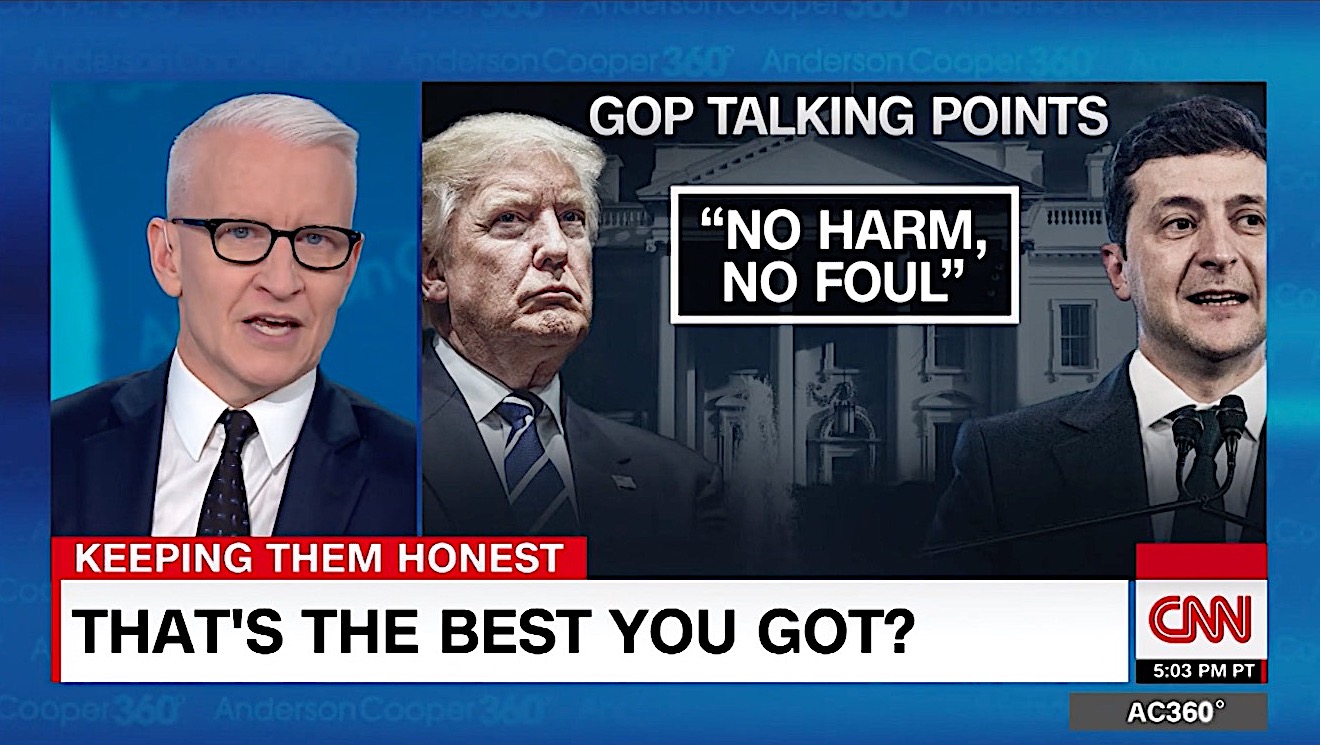Here's how Republicans plan to defend Trump from impeachment — and where their arguments fall short


A free daily email with the biggest news stories of the day – and the best features from TheWeek.com
You are now subscribed
Your newsletter sign-up was successful
Republicans have trotted out 17 defenses of President Trump's conduct with Ukraine since a whistleblower accused Trump of extorting the country's president for partisan political gain, according to The Washington Post's count.
The whistleblower's complaint has been mostly corroborated by impeachment witnesses, many of whom will testify over the next 10 days. But in an 18-page memo passed around Monday, Republicans boiled down their defense of Trump to four main points you can expect to hear frequently during the public impeaching hearings. Generally, the memo states, the transcript of Trump's July 25 call with Ukrainian President Volodymyr Zelensky doesn't show a culpable "state of mind" on Trump's part.
Specifically, the GOP memo argues that Trump's call "shows no conditionality or evidence of pressure," says Trump and Zelensky both denied that Trump pressured him during the call, claims the Ukrainian government didn't know Trump was withholding aid when Trump asked Zelensky to investigate the Bidens, and point out that Trump released the aid on Sept. 11 without any public announcement of an investigation he was seeking.
The Week
Escape your echo chamber. Get the facts behind the news, plus analysis from multiple perspectives.

Sign up for The Week's Free Newsletters
From our morning news briefing to a weekly Good News Newsletter, get the best of The Week delivered directly to your inbox.
From our morning news briefing to a weekly Good News Newsletter, get the best of The Week delivered directly to your inbox.
"Whatever you may think of the president or the case that he tried to extort Ukraine's president for political gain, there's a lot in these talking points which are just not true," Anderson Cooper said on CNN Tuesday night. For example, many of the arguments are contradicted or undermined by witnesses involved in Ukraine policy, he said, and "as many legal minds have also pointed out, attempted bribery and attempted extortion are still considered crimes." You can watch his entire fact-check below. Peter Weber
A free daily email with the biggest news stories of the day – and the best features from TheWeek.com
Peter has worked as a news and culture writer and editor at The Week since the site's launch in 2008. He covers politics, world affairs, religion and cultural currents. His journalism career began as a copy editor at a financial newswire and has included editorial positions at The New York Times Magazine, Facts on File, and Oregon State University.
-
 Switzerland could vote to cap its population
Switzerland could vote to cap its populationUnder the Radar Swiss People’s Party proposes referendum on radical anti-immigration measure to limit residents to 10 million
-
 Political cartoons for February 15
Political cartoons for February 15Cartoons Sunday's political cartoons include political ventriloquism, Europe in the middle, and more
-
 The broken water companies failing England and Wales
The broken water companies failing England and WalesExplainer With rising bills, deteriorating river health and a lack of investment, regulators face an uphill battle to stabilise the industry
-
 Judge blocks Hegseth from punishing Kelly over video
Judge blocks Hegseth from punishing Kelly over videoSpeed Read Defense Secretary Pete Hegseth pushed for the senator to be demoted over a video in which he reminds military officials they should refuse illegal orders
-
 Trump’s EPA kills legal basis for federal climate policy
Trump’s EPA kills legal basis for federal climate policySpeed Read The government’s authority to regulate several planet-warming pollutants has been repealed
-
 House votes to end Trump’s Canada tariffs
House votes to end Trump’s Canada tariffsSpeed Read Six Republicans joined with Democrats to repeal the president’s tariffs
-
 Bondi, Democrats clash over Epstein in hearing
Bondi, Democrats clash over Epstein in hearingSpeed Read Attorney General Pam Bondi ignored survivors of convicted sex offender Jeffrey Epstein and demanded that Democrats apologize to Trump
-
 El Paso airspace closure tied to FAA-Pentagon standoff
El Paso airspace closure tied to FAA-Pentagon standoffSpeed Read The closure in the Texas border city stemmed from disagreements between the Federal Aviation Administration and Pentagon officials over drone-related tests
-
 Judge blocks Trump suit for Michigan voter rolls
Judge blocks Trump suit for Michigan voter rollsSpeed Read A Trump-appointed federal judge rejected the administration’s demand for voters’ personal data
-
 US to send 200 troops to Nigeria to train army
US to send 200 troops to Nigeria to train armySpeed Read Trump has accused the West African government of failing to protect Christians from terrorist attacks
-
 Grand jury rejects charging 6 Democrats for ‘orders’ video
Grand jury rejects charging 6 Democrats for ‘orders’ videoSpeed Read The jury refused to indict Democratic lawmakers for a video in which they urged military members to resist illegal orders
